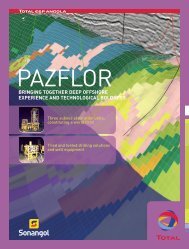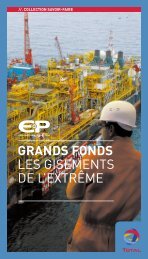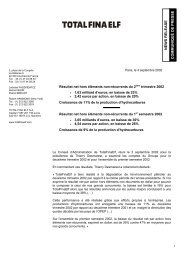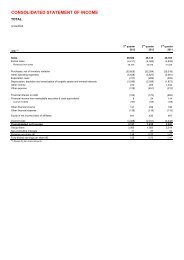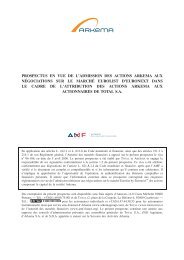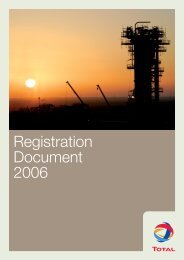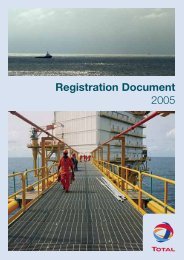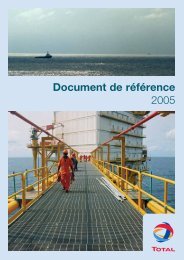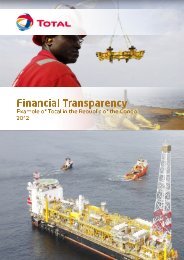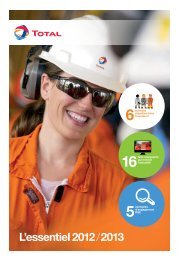TOTAL CAPITAL CANADA LTD. - Total.com
TOTAL CAPITAL CANADA LTD. - Total.com
TOTAL CAPITAL CANADA LTD. - Total.com
Create successful ePaper yourself
Turn your PDF publications into a flip-book with our unique Google optimized e-Paper software.
<strong>TOTAL</strong> <strong>CAPITAL</strong> <strong>CANADA</strong> <strong>LTD</strong>.<br />
Notes to the Financial Statements, page 3<br />
For the three months ended March 31, 2012 and 2011<br />
(Thousands of Canadian dollars)<br />
3. Significant accounting policies (continued)<br />
(b) Financial instruments (continued)<br />
(i) Non-derivative financial instruments (continued)<br />
Financial assets at fair value through profit or loss<br />
An instrument is measured at fair value through profit or loss if it is held for trading or is<br />
designated as such upon initial recognition. Financial instruments are designated at fair<br />
value through profit or loss if the Company manages such investments and makes<br />
purchase and sale decisions based on their fair value in accordance with the Company’s<br />
risk management or investment strategy. Upon initial recognition, attributable transaction<br />
costs are recognized in profit or loss. Financial assets at fair value through profit or loss<br />
are measured at fair value, and changes therein are recognized in profit or loss. The<br />
Company has designated cash at fair value.<br />
Other<br />
Other non-derivative financial instruments which include interest receivable, related party<br />
loans, accounts payable and accrued liabilities and debt are measured at amortized cost<br />
using the effective interest method, less any impairment losses.<br />
(ii) Derivative financial instruments<br />
The Company holds derivative financial instruments to hedge its foreign currency and<br />
interest rate exposures (see note 8). Derivatives are recognized initially at fair value;<br />
attributable transaction costs are recognized in profit or loss as incurred. Subsequent to<br />
initial recognition, derivatives are measured at fair value, and changes therein are<br />
accounted for in profit or loss.<br />
(iii) Share capital<br />
(c) Cash<br />
Common shares are classified as equity. Incremental costs directly attributable to the<br />
issue of ordinary shares are recognized as a deduction from equity, net of any tax effects.<br />
Cash is <strong>com</strong>prised of cash and investments with an original maturity of three months or less.



